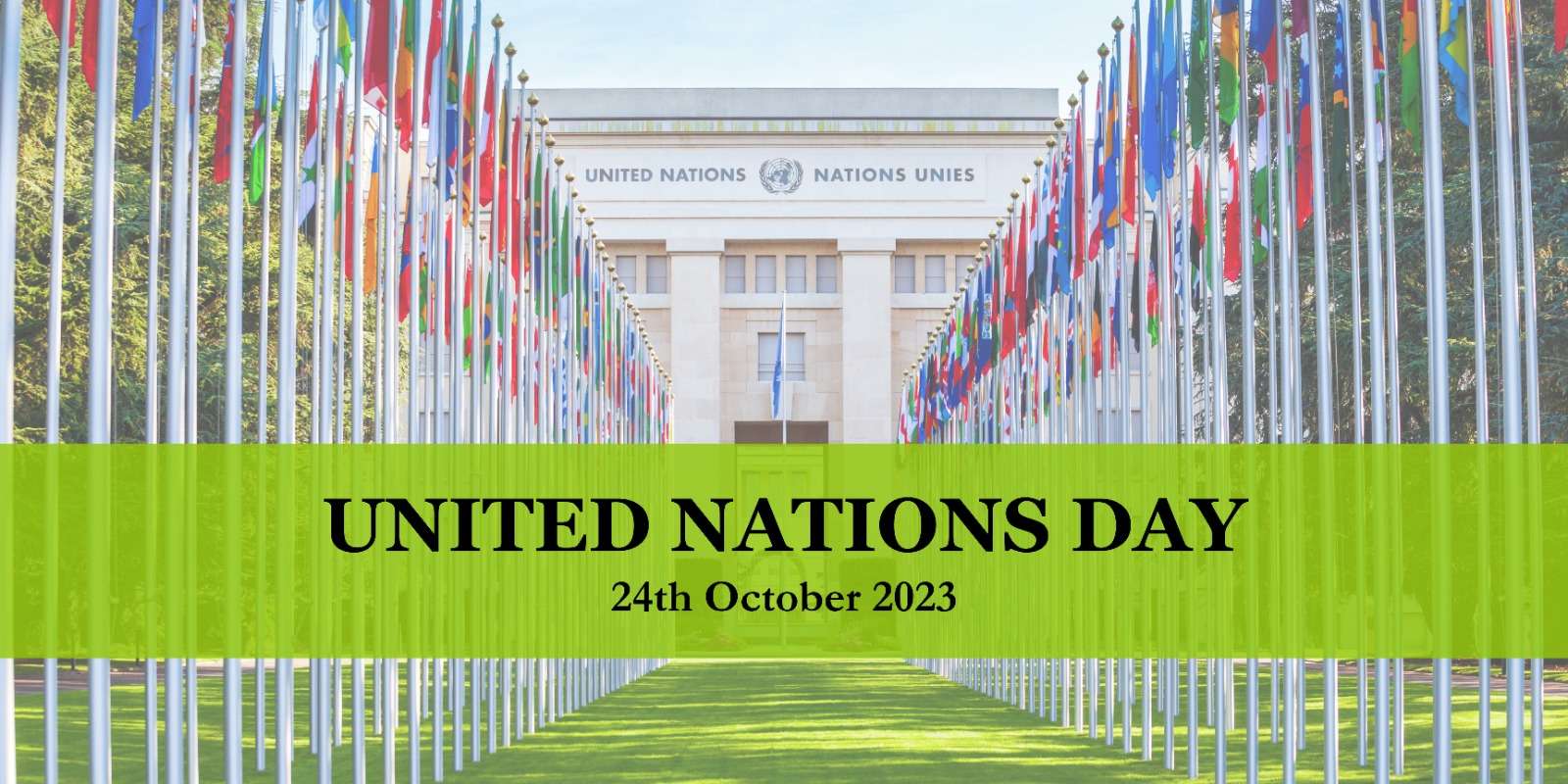UNITED NATIONS DAY

The United Nations (UN) is an international organization founded in 1945 after the Second World War to promote international cooperation and maintain international peace and security. United Nations Day, celebrated on October 24th each year, marks the anniversary of the entry into force of the UN Charter in 1945. This day serves as an occasion to highlight the enduring values of the United Nations and its vital role in addressing global challenges. Aspiring civil servants preparing for the UPSC examination should grasp the significance of this global event, considering its implications for international relations, development, and peacekeeping efforts.
History of United Nations Day
- The United Nations was formed in 1945 following the end of World War II.
- The UN Charter, which established the organization’s principles and goals, came into effect on October 24, 1945.
- United Nations Day has been observed since 1948 to promote awareness of the organization’s goals and achievements.
Theme and Significance
- The theme for United Nations Day varies each year, focusing on different aspects of global development and peace.
- It serves as a reminder of the importance of international cooperation, diplomacy, and the pursuit of peace in a world fraught with conflicts and challenges.
- UN Day promotes the values of diversity, inclusivity, and mutual understanding among nations, fostering a sense of global unity in addressing shared concerns.
Achievements and Challenges
- The UN has made significant contributions to global peacekeeping, humanitarian aid, and sustainable development, fostering stability and progress in many regions.
- Challenges persist, including conflicts, humanitarian crises, climate change, and poverty, highlighting the need for enhanced international collaboration and innovative solutions.
Promoting Sustainable Development Goals
- The UN plays a crucial role in promoting the Sustainable Development Goals (SDGs), a set of 17 global objectives aimed at addressing pressing global challenges such as poverty, inequality, and climate change.
- Through various initiatives, the UN encourages member states to prioritize sustainable development, environmental conservation, and inclusive growth to ensure a better future for all.
Role of Youth and Civil Society
- United Nations Day emphasizes the active participation of youth and civil society in global decision-making processes and development initiatives.
- Young people and civil society organizations are encouraged to engage in discussions and actions that promote peace, human rights, and sustainable development, contributing to a more inclusive and equitable world.
Key Takeaways for UPSC Aspirants
- Understand the historical context and founding principles of the United Nations.
- Grasp the significance of United Nations Day in promoting global unity and addressing global challenges.
- Recognize the importance of the Sustainable Development Goals and the role of the UN in achieving them.
- Acknowledge the role of youth and civil society in advancing the UN’s mission and values.
- Be aware of the ongoing global challenges and the need for collaborative efforts to foster peace and sustainable development worldwide.
Conclusion
United Nations Day serves as a timely reminder of the importance of global cooperation and solidarity in addressing contemporary challenges. It underscores the need for collective action to build a more peaceful, just, and sustainable world for future generations. Aspiring civil servants preparing for the UPSC examination should internalize the values promoted by the United Nations, understanding its role in shaping international relations and fostering global development. United Nations Day stands as a beacon of hope, urging nations to work together for a more prosperous and harmonious world.
Tags:
Best teachers in every subject.
Let’s get started
We can teach you anything
